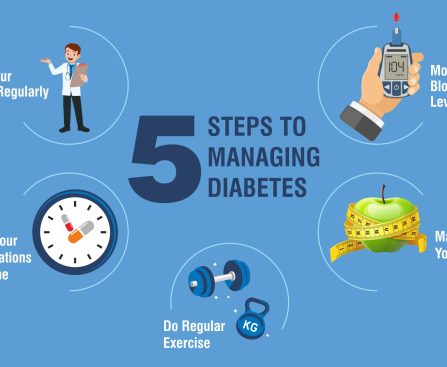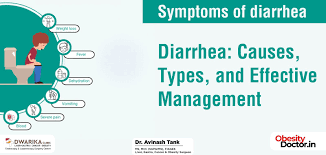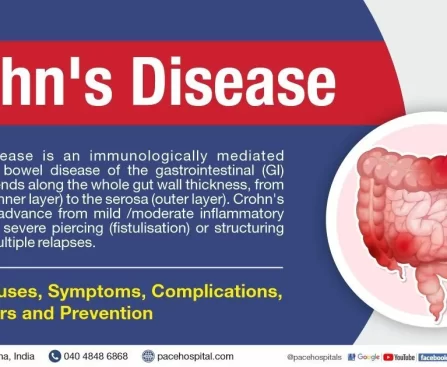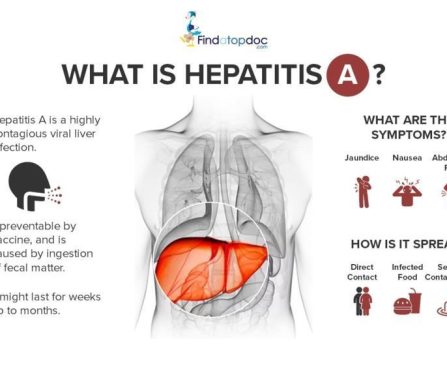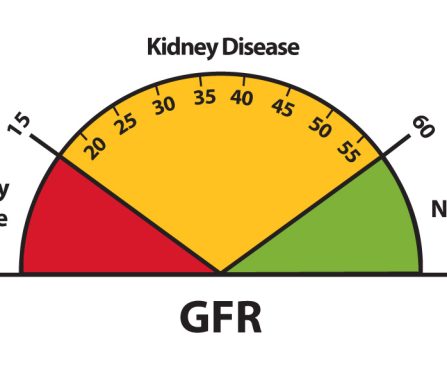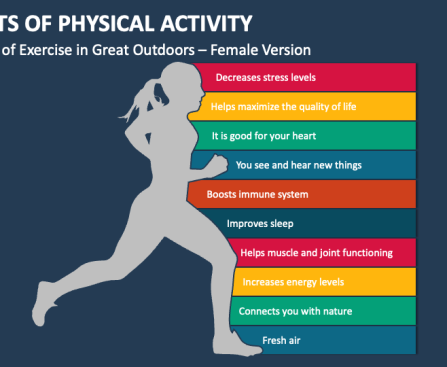On this page: Diabetes can affect almost every part of your body, including your heart, eyes, kidneys, and nerves. Diabetes is also linked to some types of cancer. You may be able to prevent or delay diabetes health problems by leading a healthy lifestyle, taking your medicines, and managing your blood glucose level, also called blood sugar level. […]
What is diarrhea? Diarrhea is loose, watery stools three or more times a day. Diarrhea may be acute, persistent, or chronic: How common is diarrhea? Diarrhea is a common problem. Acute diarrhea is more common than persistent or chronic diarrhea. Researchers estimate that about 179 million cases of acute diarrhea occur in the United States each year.1 What are […]
In this section: What is Crohn’s disease? Crohn’s disease is a chronic disease that causes inflammation and irritation in your digestive tract. Most commonly, Crohn’s affects your small intestine and the beginning of your large intestine. However, the disease can affect any part of your digestive tract, from your mouth to your anus. Learn more about your digestive system and how it works. Crohn’s disease […]
In this section: What is hepatitis B? Hepatitis B is a viral infection that causes liver inflammation and damage. Inflammation is swelling that occurs when tissues of the body become injured or infected. Inflammation can damage organs. Viruses NIH external link invade normal cells in your body. Many viruses cause infections that can spread from person to person. The […]
In this section: What is hepatitis A? Hepatitis A is a viral infection that causes liver inflammation and damage. Inflammation is swelling that occurs when tissues of the body become injured or infected. Inflammation can damage organs. Viruses NIH external link invade normal cells in your body. Many viruses cause infections that can be spread from person to person. […]
How can I tell if I am at a healthy weight? Two measurements—your body mass index (BMI) and your waist size—can help you figure out if you’re at a healthy weight. Body mass index Body mass index (BMI) is a measurement that estimates if a person has a healthy weight, overweight, or obesity. Having overweight or obesity can increase […]
In this section: If your kidney function drops below 15 percent of normal, you are said to have kidney failure. You may have symptoms from the buildup of waste products and extra water in your body. To replace your lost kidney function, you may have one of three treatment options: End-stage renal disease (ESRD) is […]
On this page: Diabetes affects many parts of your body, including your mouth NIH external link. People with diabetes are more likely to have gum disease NIH external link, cavities, and other problems with their teeth and gums.1 And some of these mouth problems can make your diabetes worse. Taking good care of your teeth and gums, including getting regular cleanings […]
his section helps educators create and implement lesson plans for counseling patients with CKD about managing their disease and preparing for renal replacement therapy (RRT). It also helps health professionals find patient education content and resources based on CKD topic. This resource is divided into six lessons that can be carried out one-on-one or in […]
Why should I be physically active? Physical activity is an important step you can take to improve your health and quality of life. Regular physical activity may help prevent or delay many health problems. Being active may help you look and feel better, both now and in the future. So what’s stopping you? Maybe you […]
